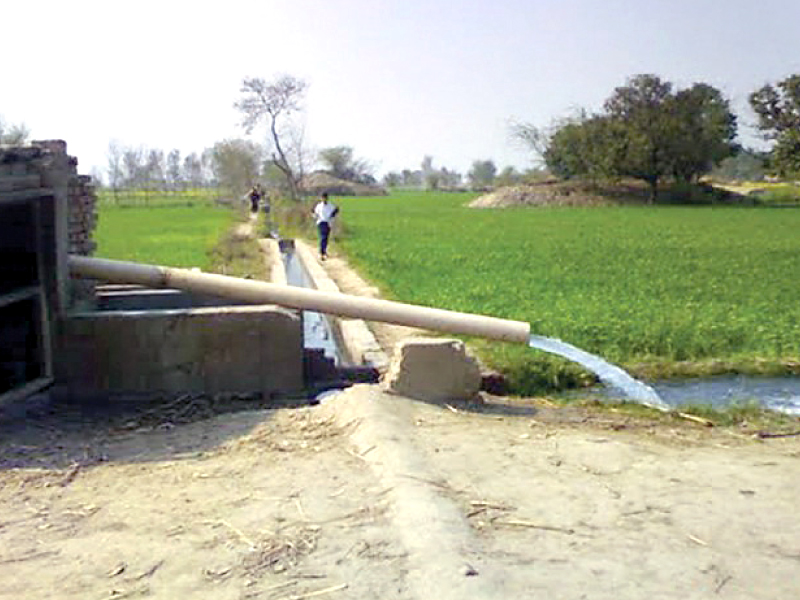
As Pakistan’s agriculture sector also faces the brunt of the energy crisis which has made it impossible for farmers to operate tube wells, a Netherlands-funded programme is promoting biogas as an alternate fuel to – the only water source for farmers as irrigation water through canals falls short of the demand.
Agriculturists say that they are handicapped as they cannot get water from canals or operate tube wells due to the prevailing energy crisis, and since most of the farmers come under the low-income bracket, they cannot go for expensive diesel oil to run the tube-wells.
However, the Rural Support Programme Network (RSPN) – a nongovernmental organisation – with assistance from the Netherlands was encouraging farmers to opt for biogas as an alternate fuel, said Rajesh B Shrestha, senior adviser at the Netherland Development Organisation, while talking to The Express Tribune.
“Currently, farmers are in disarray on how to irrigate their crops. Technological advancement in biogas plants has made it economically viable for farmers to fulfil their water needs,” Shrestha said.

Fermentation of cow dung and farm waste in plants was producing a fuel source to run the tube wells. Introduction of the technology will help lessen the water scarcity issue faced by the agriculture sector.
Rapidly growing demand for power in Pakistan has led to increase in the cost of energy and fuel and made it economically unfeasible for farmers, hence a cheaper power source such as biogas comes into play to resolve the issue, he added.
Pakistan’s economic growth has been considerably restricted due to the power crisis. Micro-economically, it has also adversely affected the agriculture sector which contributes 24% to the country’s GDP annually.
“Prolonged load-shedding has become a routine matter and the reason is continuous decline in the oil and gas reserves,” said RSPN Communication Officer Naeem Ahmed. To deal with the shortfall, we are installing biogas plants to run tube wells, Ahmed added.
The cost of installing a biogas plant was Rs120,000, of which 20% was borne by the Netherland-funded organisation in the shape of technical assistance.
Based on the requirement, different sizes of biogas plants were being designed. A plant size of 20 cubic metres, for which seven to eight animals are required, can supply enough gas to power to run a tube well for 10 to 12 hours. Whereas, a 30-cubic-metre plant with 14 to 16 animals can supply enough gas to operate the tube well for 24 hours.
Published in The Express Tribune, May 24th, 2013.
Like Business on Facebook to stay informed and join in the conversation.









































COMMENTS
Comments are moderated and generally will be posted if they are on-topic and not abusive.
For more information, please see our Comments FAQ